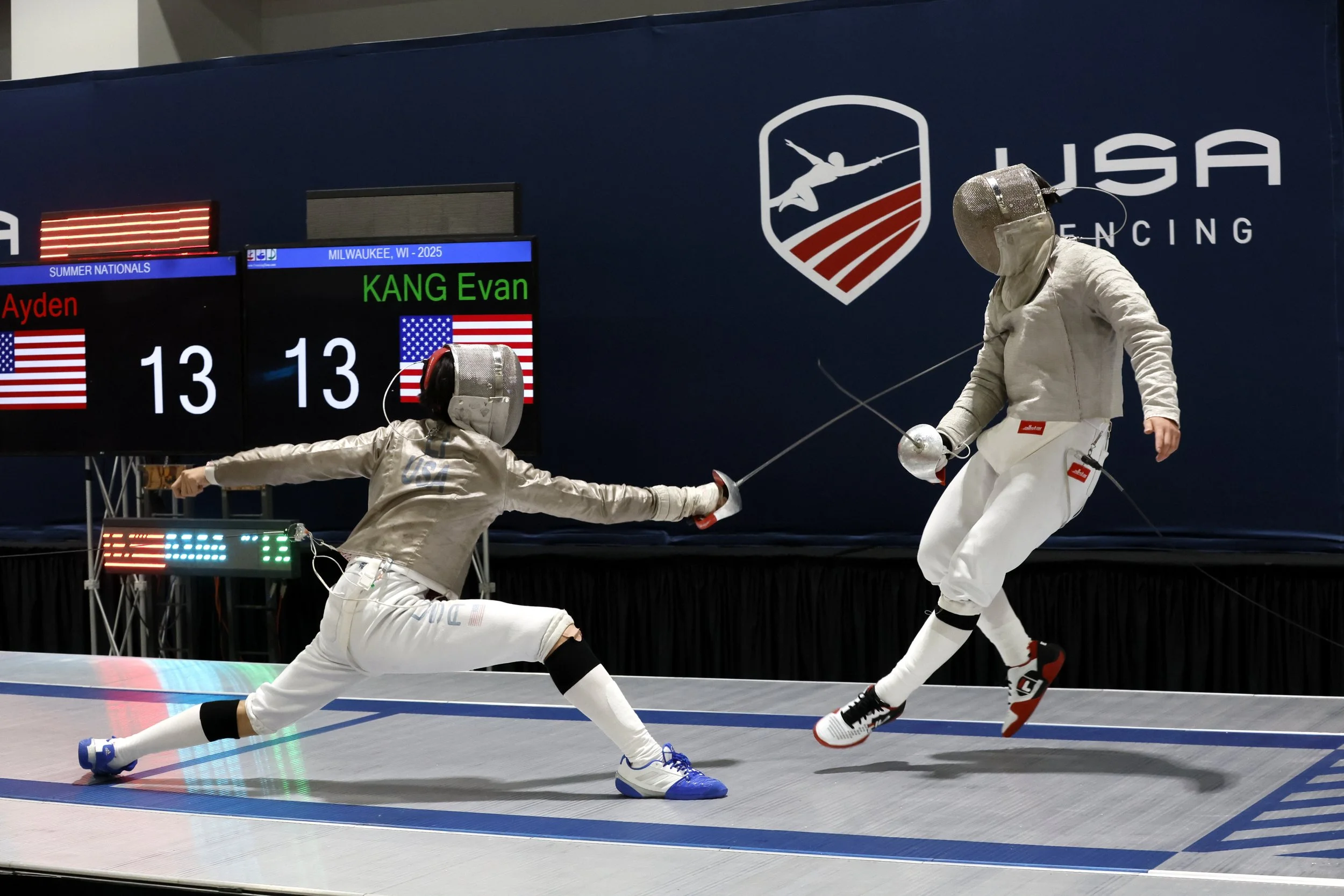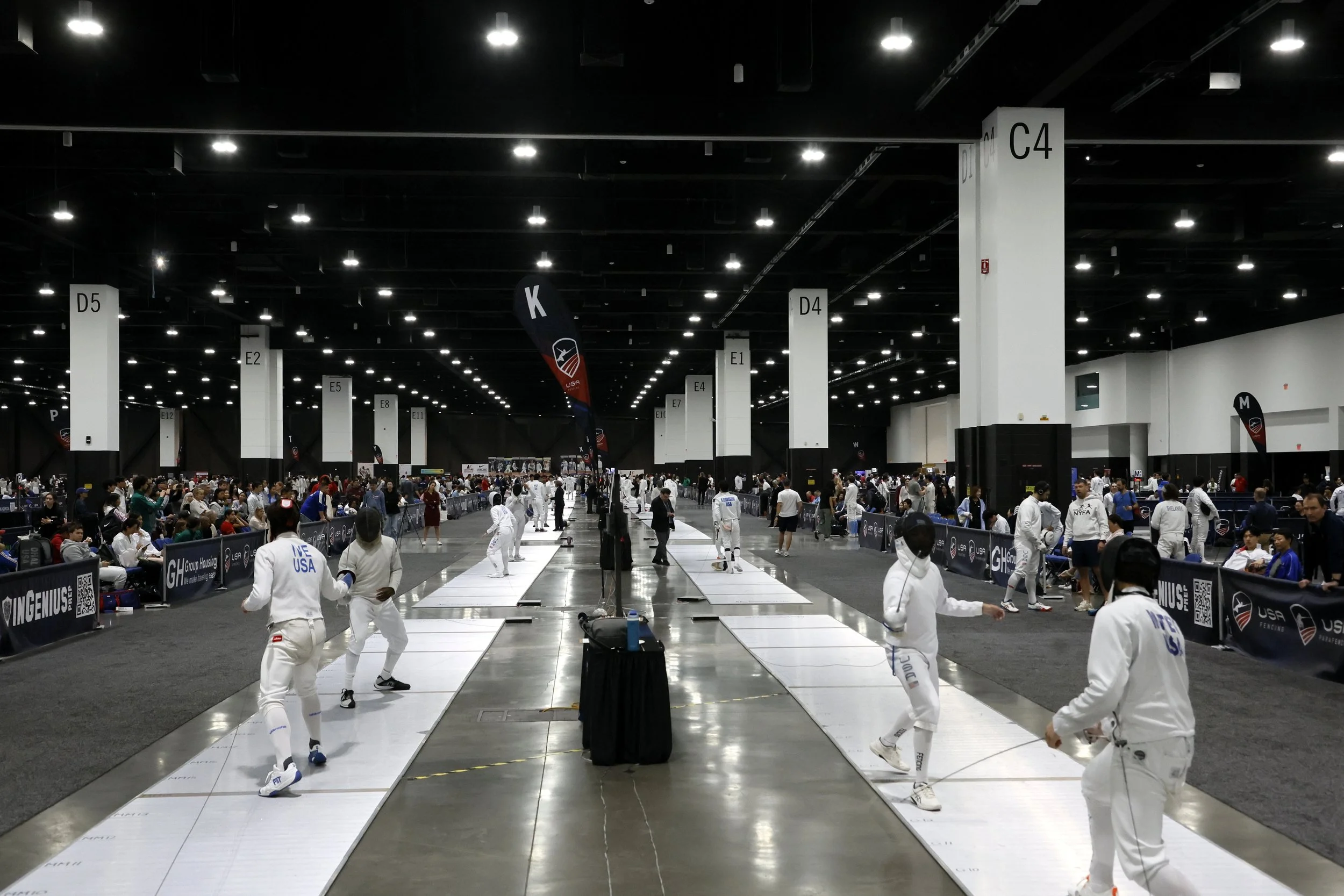Fencing Competition Day: Time as Ally, Time as Adversary
Managing time well is essential for fencing success. The competition day is a long day, potentially very long, with less than predictable scheduling and its share of stops and starts. The well-prepared fencer is ready to fence from the first touch of the first bout to the last touch of the last bout. Being ready to compete at the end of the day is linked to how well time is managed across the day.
Fencing competition day is often not systematically planned, although there are clear advantages for doing so. Success is very much related to control. As an athlete in any sport you want to “control the controllables.” Some aspects of competition are more controllable than others. The core idea of competition is to control your opponent. Of course, at the same time your opponent is trying to control you, which makes fencing bouts very difficult to control. In general, the fencer’s best chance to gain control is focusing on their thoughts and feelings. That said, controlling intensity, focus and composure does not come easy. By comparison, time is more easily controlled, in particular, how time is used between bouts. Gaining control of time can also be a first step in gaining control of yourself.
Time management is an essential part of managing the fencing competition day. Pre-bout preparation is based on knowing what to do to get physically and mentally ready, and how long it takes to do so. Subtracting the length of time needed for pre-bout preparation from the estimated time until the next bout, provides open time. The challenge of open or unstructured time is to plan it in a way that leaves you in the best-condition possible to fence bout by bout until the end of the day. The possibilities are many: Nutrition, hydration and other self-care; tactical scouting and bout planning; supporting teammates; consulting with coaches; and, equipment maintenance. Rest and recovery is an essential part of being ready to fence from start to finish, but is often overlooked. Many fencers may “free-float” during this period, wandering around, checking their phone and visiting with friends. This raises the question of whether doing so is helpful. Is it just energy drain or is it a good distraction from psychological pressure? Spending time with friends and teammates is an important part of the fencing experience, but should be done sensibly. Each fencer needs to decide for themselves.
Time management creates an opportunity for energy management, that is using some of the between bout time for rest and recovery. The energy landscape of the competition day is a cycle of ups and downs from high intensity competition to recovery and back … again and again. A key question helps bring this into focus: What is the most important bout of the day? Overwhelmingly, it is the last bout. The last bout is also the bout when the fencer is most likely to be suffering the effects of fatigue. At the end of the day, when the referee says “ready” will you be ready to move quickly and precisely and to think critically and decisively? Or will you bonk and surrender your best opportunity of the day to the low energy that follows from a combination of the hard work of fencing and poor time management?
Fatigue is the enemy of success. Time between bouts can be used for recovery and conserving energy. The most effective method of recovery is the use of mental training, either a traditional quieting-calming mindfulness method, or an active mental training technique to blend calming with bout preparation. Energy conservation can also be as simple as finding a quiet space in the venue (or even just outside the competition floor escaping the tumult of the competition), getting off your feet and into a comfortable position.
Once the day is done it useful to take a bit more time to assess what worked and what didn’t, and to readjust the plan for the next competition.
Photos: 2025 Serge Timacheff/USA Fencing



